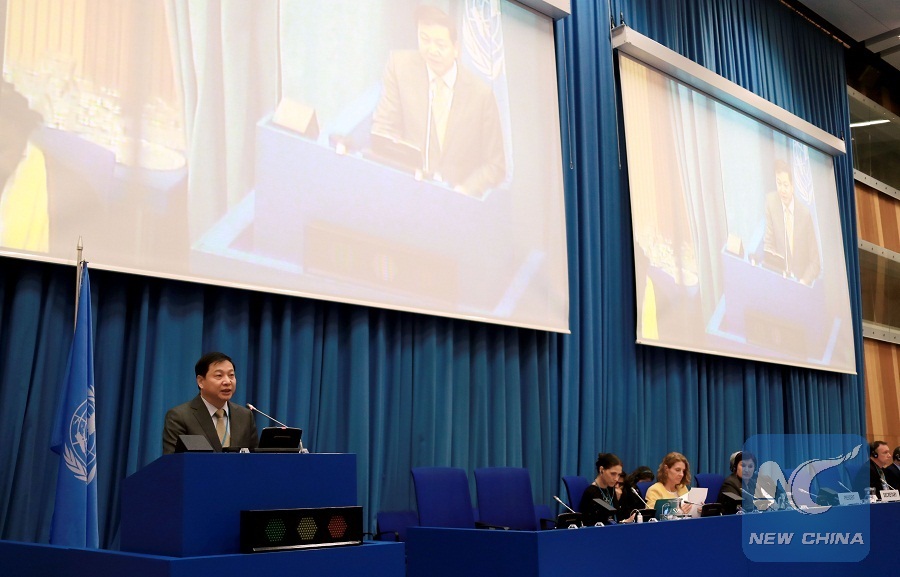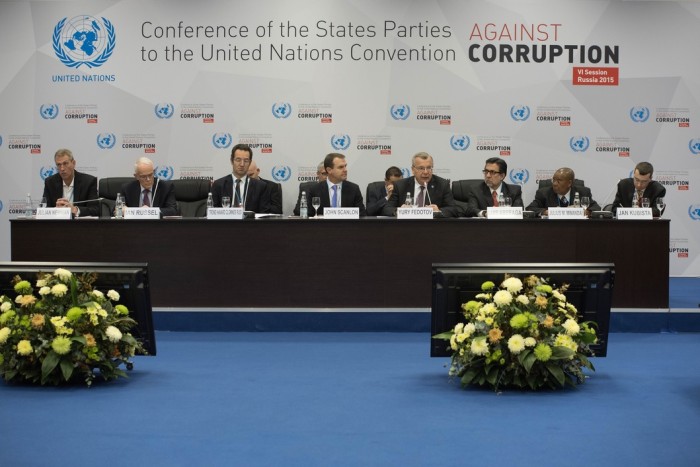Spotlight: Western countries inhibiting recovery of corrupt assets
This material belongs to: Xinhua.
VIENNA, Nov. 12 (Xinhua) — Western states have been passive in international efforts to recover assets secured through corruption and subsequently stashed abroad, thereby weakening the work of a United Nations (UN) anti-corruption conference that concluded here on Friday.
During the 7th Session of the Conference of the States Parties to the United Nations Convention against Corruption this week, a diplomatic battle between developing countries and some western states over the resolution on asset recovery took place at the body’s headquarters in the Austrian capital.
Drafted by Nigeria, the resolution aimed to boost international cooperation in asset recovery, one of the key issues in the field of anti-corruption.
According to a joint research of the UN and World Bank Group (WBG), an estimated 20-40 billion U.S. dollars each year, more or less equivalent to 15-30 percent of official development assistance funds, is stolen from developing countries due to corruption.

A large part is believed to be transferred to some western countries, which are golden havens for stolen assets from developing nations.
A mere 5 billion of such funds have been repatriated over the past 15 years, shining light on the difficulty in asset recovery.
However, a diplomat involved in drafting the resolution told Xinhua that some western states jointly boycotted a more detailed resolution, trying to set barriers for international cooperation in asset recovery.
Amended by some developed countries, the resolution is now weak and ambiguous and lacks substantive content to fully return stolen assets to their country of origin.
The diplomat, who wanted to remain anonymous, said the key reason for western countries are hindering the process is that there is a wide gap between stolen assets hidden in rich countries and those have been repatriated.
“Because it’s not their economic and strategic interest (to return the money back),” said the diplomat. “This is theft.”
“Lack of political will” was cited as a key impediment to the recovery of the proceeds of corruption, said the report made by the United Nations Office on Drugs and Crime and WBG.
The report listed 29 barriers for asset recovery, including legal barriers and operational barriers, making the issue much more complicated. The diplomat said the barriers could be easily set by developed countries.
“Russia’s position on asset recovery is that international cooperation on this issue should be considerably strengthened. I think nobody can be satisfied with the current situation,” Deputy Head of the Russian delegation Avetisyan Andrey told Xinhua.
South Africa: SA Participates in UN Anti-Corruption Conference
This material belongs to: AllAfrica.
Public Service and Administration Minister Faith Muthambi is leading a South African delegation to a UN anti-corruption conference.
The seventh session Conference of the State Parties to the United Nations Convention against Corruption (UNCAC) in Vienna, Austria, got underway today and ends on Thursday, 9 November.
South Africa ratified the UNCAC in November 2004 and became a State Party to the convention.
A Conference of the State Parties to the Convention (COSP) was established to improve the capacity of and cooperation between States Parties to achieve the objectives set in the convention and to promote and review its implementation.
Minister Muthambi will use the opportunity to brief the delegates on South Africa’s approach in the fight against corruption and share a few highlights in terms of the implementation of the convention.


